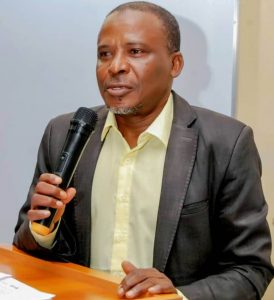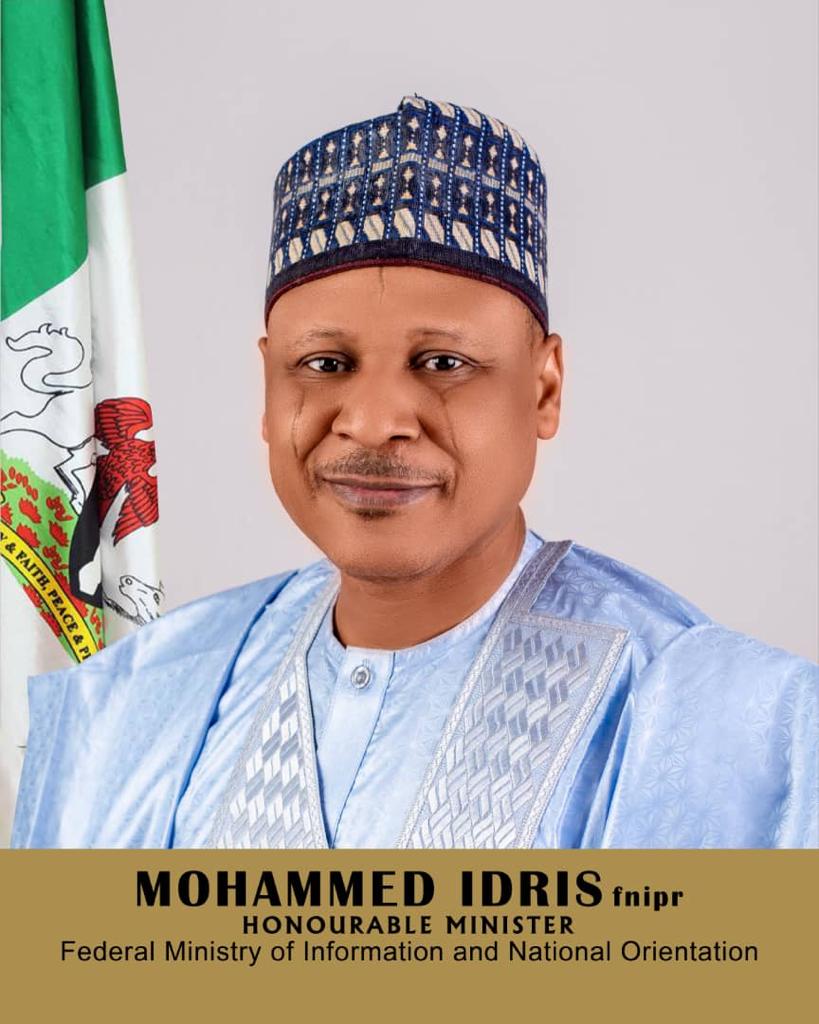Late last year, the Portulans Institute, an Independent, nonpartisan research and educational institute that aims to foster metrics-based and better policymaking on technology, innovation, and ICTs, based in Washington DC released the 2024 global network Readiness Index (NRI 2024). The NRI annually ranks countries along over 100 indicines that are grouped into four broad areas or pillars, namely technology, people, governance and impact. The extensive data from which the ranking is done allowances for the assessment of countries in terms of the progress (or lack of it) that has been made in the preceding year. In the 2024 ranking, Nigeria is ranked 112 out of 133 countries, meaning that it is at the bottom of the ladder. This ranking indicates lack of progress as the country moved from 106 last year to 112 position. Nigeria is not even among the top 20 performing countries in Africa.
The results show that Nigerian performance in three of the four pillars dropped. For instance, in technology, the country moved from 88th last year to 94th in 2024 while in the People Pillar the move was from 96th to 112th. Similarly, on the Impact pillar, the country dropped back to 118 from 116 position. It maintains a lowly position of 114 in the Government pillar.
Among the three sub-pillars of Technology, Nigerians performed relatively fairly well in Content, being ranked number 49 while for the remaining two, Access and future technologies, it was ranked 110th and 99th respectively. Access has remained a key challenge to the effective utilization of digital technology in the country. With the arrival of Starlink, presumably, there is a universal coverage, and thus access should improve. However, affordability has worsened over the year, both as a result of predatory pricing by Starlink as well as the collapse of the national currency. This is even to become worse with the decision by the telcos to increase tariffs. Additionally, there is no further effort towards improving both connectivity and accessibility in the country. In spite of advocacy for community network to provide communities a means for bridging the digital divide in underserved communities, the country is yet to embrace this. While the recent launch of the National Broadband Alliance with its ambitious plan for rolling out more fiber, the reality is that fiber without corresponding initiatives at bringing cost down will still not be an effective use means for bridging the connectivity gaps in the country.
The corresponding ranking of the country in the Government pillar are 119, 113 and 114 for individual, regulation and inclusion respectively. When we move to Impact, for the economic sub-pillar the country has been ranked 98, it is 105 for Quality of Life and 112 for SDG contribution.
The picture becomes even more worrisome when we look at the details of the scoring, Nigeria’s overall score is 34.87 compared to 35.73 in 2023. Similarly, the score for technology received regression with a total of 32.50 as compared to 34.42 in 2023. In this connection, it is instructive to note that whereas in 2023, Nigeria’s score for access was 55.57, in 2024, the corresponding score came down to 38.87. Similar regression is observed in the People Pillar from 33.89 to 32.50 and Government pillar from 37.40 to 28.40 while the corresponding scores for Impact improved slightly from 37, 20 to 39.89.
Among the indicators in which the country did fairly well were Regulatory environment where the country is ranked at 46, Cybersecurity (55), Data Capabilities (55), Annual investment in telecommunication services (27), AI scientific publications (13) and Domestic market scale (26). Although our score for ecommerce indicator was relatively high at 75.00, we were ranked 87, signifying that this is an indicator in which most countries performed well. The three indicators in which we were ranked relatively high were not directly related to digital technology. We had the higher score of 86.90 for regulatory environment, which tells us about the sort of policies and regulations we have rather than our technology. Similarly, the next three higher score were Domestic market scale (69.39) which is more about the size of our population, AI scientific publications (61.77) and Annual investment in telecommunication services (63.90). AI scientific publications only tells that our researchers and academics are active in publishing but does not tell what exactly we producing from these publications as outcomes of technology research. Annual investment in telecommunication services is more about what people are investing in the sector than what they are producing, some of which could be speculative investment. Similarly, while our rank for Income inequality at 59 with a score of 71.72 reinforced the point that our best performance are indicators that do not directly relate to technology.
Again, like last year, there are many indicators for which Nigeria had no data with which to computer the score, thus contributing to bringing down the scores of the country. These include Internet access in schools, robot density, gender gap in the use of internet, AI talent, R and D expenditure by government and quality of education.
It will seem that as a country, we have not learnt lessons from the previous ranking. We have not made deliberate effort to ensure that data is available in those areas that we were scored zero in the previous year. In spite of advocacy and repeated commitment by government to bridge the gender digital divide, we still do not have relevant data for us to determine whether the s at bridging are yielding results or not. This lack of interest or inability to collect disaggregated data along gender itself indicates the lack of informed commitment to addressing the gender digital divide. If we are going to make progress we cannot continue to operate in a gender-blind framework.
Government has caused a National Artificial Intelligence Strategy to be developed but this has not yet moved to the implementation level. There are however presently, two bills before the National Assembly, both aimed at ensuring the “proper control of usage of AI”
It will appear that rather than progress, Nigeria seems to record comparably poorer progress as a number of countries have now overtaken it and pushed it further below to the bottom. Last year, following the release the of the 2023 NRI, the Nigeria Communications Commission (NCC) convened a stakeholders meeting which reviewed Nigeria’ raking and made suggestions on what should be done to lift the country. One of the agreed suggestions was for Nigeria to localize the NRO process and conduct state by state NRI assessment as well provide incentive for performing states so as to spur competition among the states. This laudable suggestion was never Implemented and indeed, the release of the 2024 NRI did not even elicit even press statement, let alone a convening a forum to discuss it.
While in itself, the NRI doesn’t tell much about how countries are using and benefiting from digital technology, it nevertheless, provides a clue as to what can be done so that the country’s position in benefiting from digital technology can improve. In this connection, we at the Centre for Information Technology and Development (CITAD) would like to offer the following recommendations, including repeating some of the ones we made last year.
- Convening the Stakeholders Forum to Review Nigerian performance and to take steps to implement the recommendations of last year’s forums. Such a forum would help the country map out strategies not only on how to improve Nigeria’s ranking but also in addressing existential realities of the various dimensions of the digital divide in the country.
- Learning from global good practices, Nigeria should license a new tier of last mile connectivity provide to address the gaps in ways that will also take into consideration affordability. This is to allow for community networks which small, nibble networks set up by communities and managed by them to meet their communication need. The advantage of this is that government does not need of finance these networks nor does it have to wait endless for MNOs which will not go into these communities because they are not profitable either due to sparse populations or the people of the communities are to poor
- The USPF was set up as a bridging mechanism, to address gaps in access and affordability. It should do this through, among many others, receiving applications for loans and grants from eligible persons such as community-based communications operators, providing loan recipients and grantees with technical and managerial assistance, such as resolution of equipment vendor issues and setting up of billing systems. At the moment is strategy is mainly subsidies private sector to provide connectivity to unserved communities which has not been effective. In the interest of promoting greater access, the USPF needs to tweak its strategy and find a way to implement the number 1 of its functions as provided in section 118 (1) of the Act establishing it
- Taking data seriously: Going through the detailed computation of the NRI for Nigeria shows that there are many items for which zero was recorded for Nigeria. Data could not be found to use for the computation of those sub-pillars. This illustrates the poor state of data and statistics in the country. It is important to emphasize that Nigeria must take the issue of data capturing and keeping very serious, not just for the ICT sector but across all aspects of society in the country
There is so much by way of policies and regulations in the country, even if some of these policies and regulations work against the effective use of the digital technology for social economic transformation. The abundance of policies and regulations can be seen from the high score that the country has on regulatory environment. However, the number of regulatory instruments does not in itself tells whether a country has the appropriate policy instruments that can lead to the achievement of its desired objectives. It is important to arrive at these instruments through inclusive consultation, involving key stakeholders and to recognize the critical gaps that exist in areas such as bridging the gender digital divide and connectivity gaps in the country. We call on the Minister of Ministry of Communications, Innovation & Digital Economy to purse a more inclusive processes and framework in steering the digital ship of the country.




